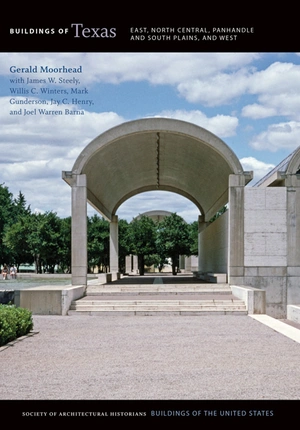
Set in a park named for John H. Reagan that was allocated by developer Tucker Royall in his Michaux Park Addition of 1911, the red brick school is Tudor Revival, a style, popular for educational facilities. The treatment is rich on all facades of the two stories above a raised basement. The T-plan layout takes advantage of the sloping site, allowing for the taller auditorium at the back to be placed downhill. Grand staircases lead to entrances on all four sides. The front entrance has a stone Tudor arch framed by deep brick pilasters that transform to stone pilasters on the second floor and to little Palladian motifs beside the central gable. The building’s end bays have prominent diagonal patterns of contrasting pink brick. Although used for a succession of schools from high school to junior high to elementary school until 1976, it was renovated and reopened as a museum in 1982. There have been no changes to the exterior or interior walls or finishes. Display cases now used by the museum were made for the Hall of State at the 1936 Texas Centennial Exposition in Dallas.

